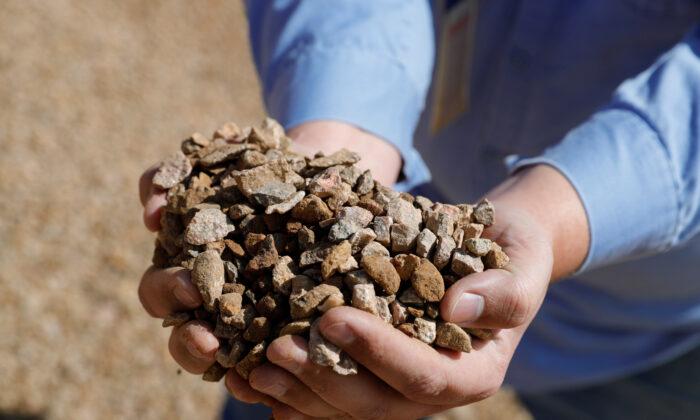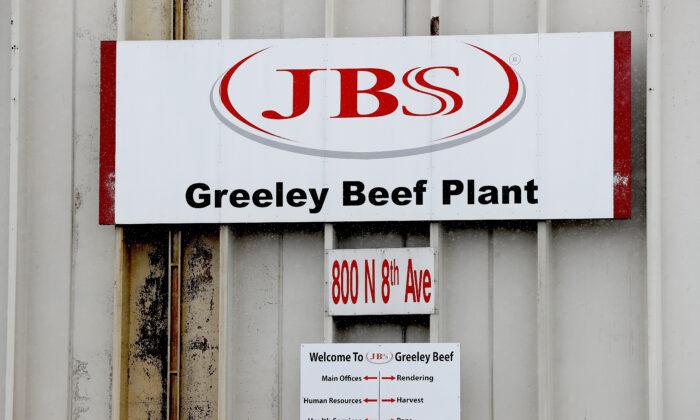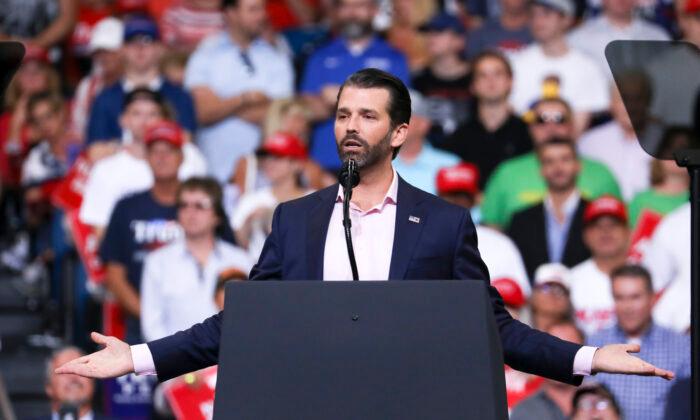The Chinese communist regime is ready—and willing—to use the country’s near-monopoly in rare-earth elements (REEs) as a trump card in any trade war with the United States, according to China policy analysts.
Beijing aims to make the United States directly and indirectly dependent on China for critical minerals and REEs, according to China scholar and Horizon Advisory co-founder Emily de La Bruyère.
China’s Rare-Earth Leverage
The Chinese regime views the CCP virus crisis as “an opportunity; a chance to expand its position in U.S. markets, supply chains, and critical infrastructure,” according to an earlier report from the Horizon team on CCP efforts to subvert U.S. recovery investment. In times of economic crisis, the report states, the communist regime targets markets and assets it considers vulnerable.“The goals are to foster dependence, to siphon U.S. research and development, and to co-opt markets.”

According to the report, Yang Danhui of China’s Academy of Social Sciences said in 2018 that China’s rare-earth strategy is one of capturing “international supply chains for rare mineral resources, and gradually mastering the leading power of rare earth trade rules and international pricing.”
Under a World Trade Organization ruling from 2014, China’s communist regime was obliged to abolish its quotas on rare-earth exports. However, the Horizon Advisory report explains that while China adhered to the ruling, it circumvented it by replacing the quotas with strict state control of the country’s rare-earths mining and processing industry, allowing the regime uninterrupted control over production and trade.
Old Playbook, New Targets
According to Horizon Advisory’s June report, China seeks to replicate strategies it honed during the 2008 economic crisis, when it worked to extend its presence in U.S. supply chains, manufacturing, and infrastructure systems. Notable casualties of these measures included U.S. solar-panel producers and lithium-ion battery makers. Companies that have since fallen into the hands of Chinese firms include GE Appliances, which was acquired by Chinese multinational Haier in 2016.The report states: “Before 2008, an American worker could buy a GE refrigerator manufactured by an American firm whose profits were reinvested in the American economy. Today, just about any appliance on the market bankrolls a Chinese conglomerate, whether the product’s label indicates as much or not.”
US Rare-Earth Dependence
At a recent hearing of the U.S. Senate Committee on Energy and Natural Resources on the effects of the CCP virus on mineral supply chains, Sen. Lisa Murkowski (R-Alaska) quoted U.S. Geological Survey (USGS) data showing that in 2019, the United States imported 50 percent of national requirements for 46 different minerals, and 100 percent of 17 of them—including several REEs.“Beyond the numbers, that means we are placing our fate on others’ ability and willingness to sell to us,” Murkowski said. “And we are forcing American manufacturers to develop complex global supply chains that sometimes prompt them to realize it would be cheaper and easier to locate somewhere else.”

At the same hearing, USGS mineral specialist Dr. Nedal T. Nassar said the CCP virus pandemic highlighted the risks to supply chain systems around the world. He also spoke of previous Chinese threats to cut off exports of REEs.
“China’s threats to cut-off rare earth supplies in 2010 epitomized these risks for importing countries who had limited alternatives due to China’s near-monopoly of the rare earth supply chain,” he said.
In the race for supply chain investment, “the United States is getting lapped,” Joe Bryan, senior fellow at the Atlantic Council Global Energy Center, said in his testimony.
Meanwhile, Dr. Thomas J. Duesterberg, senior fellow at the Hudson Institute, told the hearing that the United States’ leadership in artificial intelligence, autonomous vehicles, and the internet of things is being challenged by adversarial competition.
China Moves on Africa
Beijing isn’t satisfied with developing and controlling its rare-earths industry at home; the regime also seeks to expand its rare-earths influence and presence globally, according to Horizon Advisory.“For China, the world’s largest producer of rare earths, the discovery of major rare earths mines outside China will undoubtedly have a profound impact on the future development of the rare-earths industry,“ states a Horizon report that cites a 2016 research document on China’s Belt and Road Initiative. ”Simply relying on China’s domestic rare earth mining is unrealistic. It is critical for Chinese companies to Go Out and seek rare earth resources.”
“On the African continent,” she said, “this means that Beijing works not just to grab, but rather to control resource reserves, markets, industrial supply chains, and standards. Beijing translates control over Africa’s markets, resources, and standards to influence over the world’s.”
De La Bruyère said that “China regularly overplays its hand in relations with Africa and disregards international norms as it expands its commercial interests,” including in terms of human rights and corruption. She urged the commission that the United States must define both its policy goals and standing in relation to China, and to plan to compete with the CCP.
“The COVID-19 crisis should accelerate the invigoration of the U.S. strategic approach to China,” she said.





